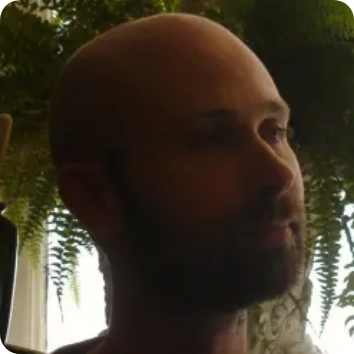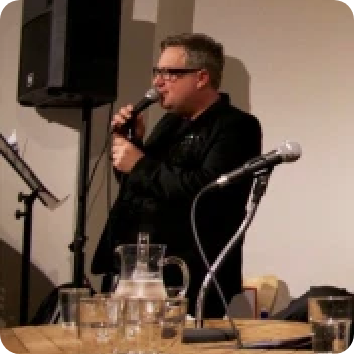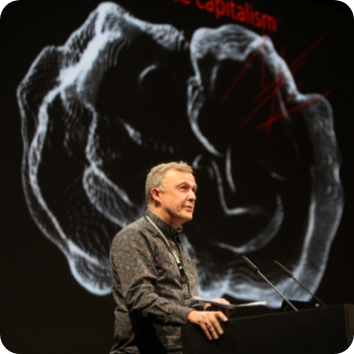About
At the Cultural Engine, we like to actually make things happen, and we understand the interconnectedness of these sectors. We always bring creative and joined up thinking to the organizations that we work with.
We are interested in good ideas, but recognise that making ideas into reality can be challenging for organisations of all sizes. Therefore we provide committed and hands-on support that really makes a difference.
Giles Tofield

Giles is an innovative and creative thinker, writer and project manager who has a track record of scoping, funding and delivering a range of projects across different sectors including culture/art and heritage, regeneration and economic development, education, transport and social well-being. He is a skilled bid and strategy writer, but he also likes to get involved in delivery, applying ideas to benefit organisations and the people they work with.
Giles Tofield is Director of the Cultural Engine CIC, a Southend based social enterprise that supports a range of public and third sector organisations to get interesting social and cultural projects off the ground, secure funding and develop strategy. Previously Head of Regeneration at Renaissance Southend, he has worked in regeneration across London and the Thames Gateway over the last 15 years, working at the cross section of Government policy and local planning/economic development and cultural strategies. Giles has therefore been heavily involved in many of the major public sector funded development and public realm schemes that have been seen in Southend since 2010. With a background in Critical/Literary Theory, he retains a healthy interest in analysing public policy and how this ultimately affects the real world (public spaces, transport strategy and major developments for example), and how supposedly separate sectors (transport, art/culture, health, heritage, education…) are all interconnected.
Peter Vadden

Starting his career in a small private business, Peter learnt the importance of income and cash flow giving him a grounding for practicality, speed, and accuracy. Moving into the public sector brought the opportunity to develop auditing, procurement, staff management, change management and for the past 10 years senior management in running cultural services covering Museums, Libraries, Parks and Ground Maintenance, Theatres, Leisure Centre, major cultural projects, and events. The last 4 years have brought considerable experience in operational management in a tight economic environment, that has lead to the development and successful implementation of income streams, value engineering, and cost-effectiveness analysis.
Andrew Branch

Andrew Branch teaches at the University of East London, leading its MA Media and Communication Industries course. He is interested in making sense of the workings of the creative industries, held up as drivers of progressive social and economic change by successive governments intent on superintending them. Drawing inspiration from the philosophical anthropology of Pierre Bourdieu, his research focus is on how workers in these industries – and the aspirational students of today who will be their successors – negotiate the complex relations between commercial imperatives and creative practice. He situates this interest in the wider context of examining how subjectivities are formed, embodied, negotiated and captured in media discourses, as well as their articulation in the field of education by those accumulating capital.
The impact of this research is in part realised via the public-facing projects he delivers as co-director of the Cultural Engine Research Group (CERG), which works with marginalised communities, securing funding to study how specific sites of incubation frame social reproduction and citizens’ horizons of plausibility.
Tony D Sampson

Tony D. Sampson is a writer and reader in Digital Communications in EBS at the University of Essex. A former musician, he studied computer technology and cultural theory before receiving a PhD in sociology (Essex). His publications include The Spam Book, coedited with Jussi Parikka (Hampton Press, 2009), Virality: Contagion Theory in the Age of Networks (University of Minnesota Press, 2012), The Assemblage Brain: Sense Making in Neuroculture (University of Minnesota Press, Dec 2016), Affect and Social Media, coedited with Darren Ellis and Stephen Maddison (Rowman and Littlefield, 2018), and A Sleepwalker’s Guide to Social Media (Polity Press, 2020). Tony is the organizer of the Affect and Social Media conferences and a co-director of the Cultural Engine Research Group (including Club Critical Theory in Southend, Essex).
He lived in Southend and the surrounding area for longer than he cares to remember… 🙂 In 2023, he moved up north, to Colchester.
He blogs at: Virality
Sean McLoughlin
Sean has spent the last 17 years planning and running creative projects for communities, with experience of hands-on delivery and strategic development of
major events and festivals, including being Director of Southend’s largest music and arts festival Village Green. He understands the challenges and
opportunities that come with local events and can support groups with his knowledge and insight and bring particular insight into opportunities for strategic
events using local talent and how this fits in to the wider cultural, social and economic context.
Lorem Ipsum
